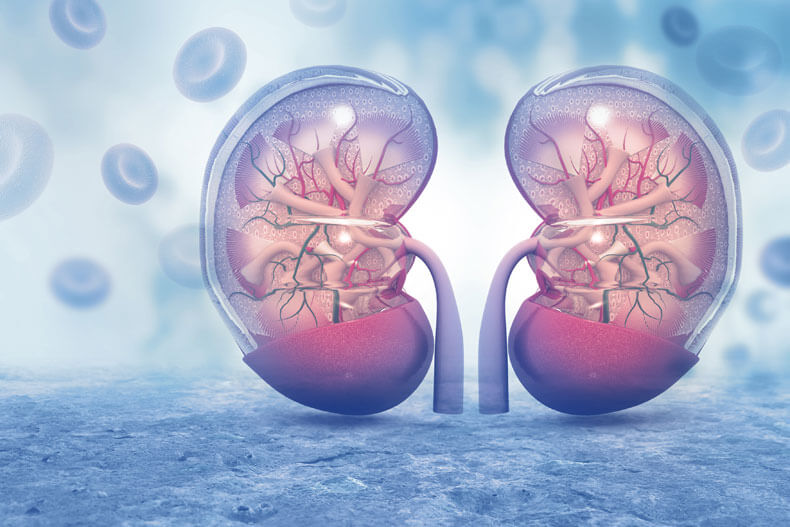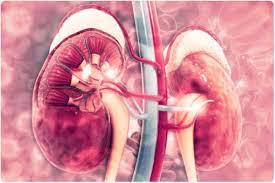Everything You Need To Know About Kidney Disease
Jan 29, 2024 By Marie White
The kidneys are essential organs that play a vital role in maintaining overall health by removing waste products and excess bodily fluids, regulating electrolytes and fluid balance, and producing hormones that help regulate blood pressure and red blood cell production. When the kidneys are damaged, these functions may be impaired, leading to serious health consequences. Several underlying conditions, such as diabetes, high blood pressure, and kidney infections, can cause kidney disease. Treatment for kidney disease may include medications and, in severe cases, dialysis or a kidney transplant. It can also be caused by certain medications, such as nonsteroidal anti-inflammatory drugs (NSAIDs) and certain antibiotics.
Stages
Kidney disease can be classified into five stages, ranging from mild to severe, based on the level of kidney function and any symptoms. The stages of kidney disease are as follows:
- increased kidney function
- Mild decrease in function
- Moderate decrease
- Severe decrease
- Kidney failure
It is important to note that some people with kidney disease may not experience symptoms in the early stages of the condition. This is why it is important to have regular check-ups with a healthcare provider and undergo tests to check for kidney function.
Signs And Symptoms
Signs and symptoms of kidney disease may include swelling, changes in urination, fatigue, skin changes, nausea and vomiting, loss of appetite, difficulty concentrating, shortness of breath, chest pain, high blood pressure, and other symptoms. If experiencing any of these symptoms, you must speak with a healthcare provider for proper diagnosis and treatment.
Treatment For Kidney Disease
Treatment for kidney disease may include medications to control underlying conditions, such as diabetes or high blood pressure, and to manage symptoms. In severe cases, dialysis or a kidney transplant may be necessary. It is important to follow your healthcare provider's treatment plan and adhere to any recommended lifestyle changes to manage kidney disease and protect overall health.

Risk Factors
By maintaining a healthy diet, getting regular exercise, and managing any underlying health conditions, you can help reduce your risk of developing kidney disease. It is also important to stay hydrated, avoid smoking and excessive alcohol consumption, and take over-the-counter medications without consulting a healthcare provider.
Additional Considerations
- Here are a few additional considerations for kidney disease:
- Kidney disease can lead to serious health consequences, including anemia, nerve damage, cardiovascular disease, and bone disease.
- Early diagnosis and treatment of kidney disease can help slow the condition's progression and reduce the risk of complications.
- Lifestyle changes, such as maintaining a healthy diet, regular exercise, and managing underlying health conditions, can help manage kidney disease and protect overall health.
- It is important to seek medical attention if you are experiencing any symptoms of kidney disease, as timely treatment can help slow the condition's progression.
- Regular check-ups with a healthcare provider and tests to check for kidney function are important for the early detection and management of kidney disease.
- In addition to lifestyle changes, treatment for kidney disease may include medications to control underlying conditions and manage symptoms, as well as dialysis or a kidney transplant in severe cases.
- Supportive care, such as physical therapy and counseling, may also help manage kidney disease and improve quality of life.
In conclusion, kidney disease is a condition in which the kidneys are damaged and unable to effectively filter waste and excess fluids from the blood. Several underlying conditions, such as diabetes, high blood pressure, and certain medications, can cause it. Kidney disease is classified into five stages based on the level of kidney function and the presence of any symptoms. Signs and symptoms of kidney disease may include swelling, changes in urination, fatigue, skin changes, nausea and vomiting, loss of appetite, difficulty concentrating, shortness of breath, chest pain, high blood pressure, and other symptoms.

Treatment for kidney disease may include medications and, in severe cases, dialysis or a kidney transplant. It is important to follow your healthcare provider's treatment plan and adhere to any recommended lifestyle changes to manage kidney disease and protect overall health. If experiencing any of these symptoms, you must speak with a healthcare provider for proper diagnosis and treatment. Maintaining a healthy lifestyle can help reduce your risk of developing kidney disease.
-
 Food Nov 08, 2023
Food Nov 08, 2023Long-Lasting Meals: 12 Simple Techniques for Food Preservation
Dive into 12 simple yet effective food preservation techniques to extend the life of your food, save money, and reduce waste, exploring traditional methods to modern practices.
-
 Condition Jan 04, 2024
Condition Jan 04, 2024What is Back Labor
Experiencing back labour during pregnancy can be a strange and unpleasant experience. Learn about what it is, the symptoms, and ways to relieve the pain so you're prepared for delivery day!
-
 Food Nov 08, 2023
Food Nov 08, 2023Unveiling the Health Wonders of Gelatin: A Comprehensive Guide
Uncover the numerous health benefits of gelatin, discover natural sources, and explore delicious ways to incorporate it into your diet with our comprehensive guide.
-
 Food Nov 08, 2023
Food Nov 08, 2023Pecans Daily: Powerful Reasons to Incorporate This Nut into Your Diet
Explore the numerous health benefits of pecans, from heart health to digestion. Learn how to incorporate these nutritional powerhouses into your everyday meals.
